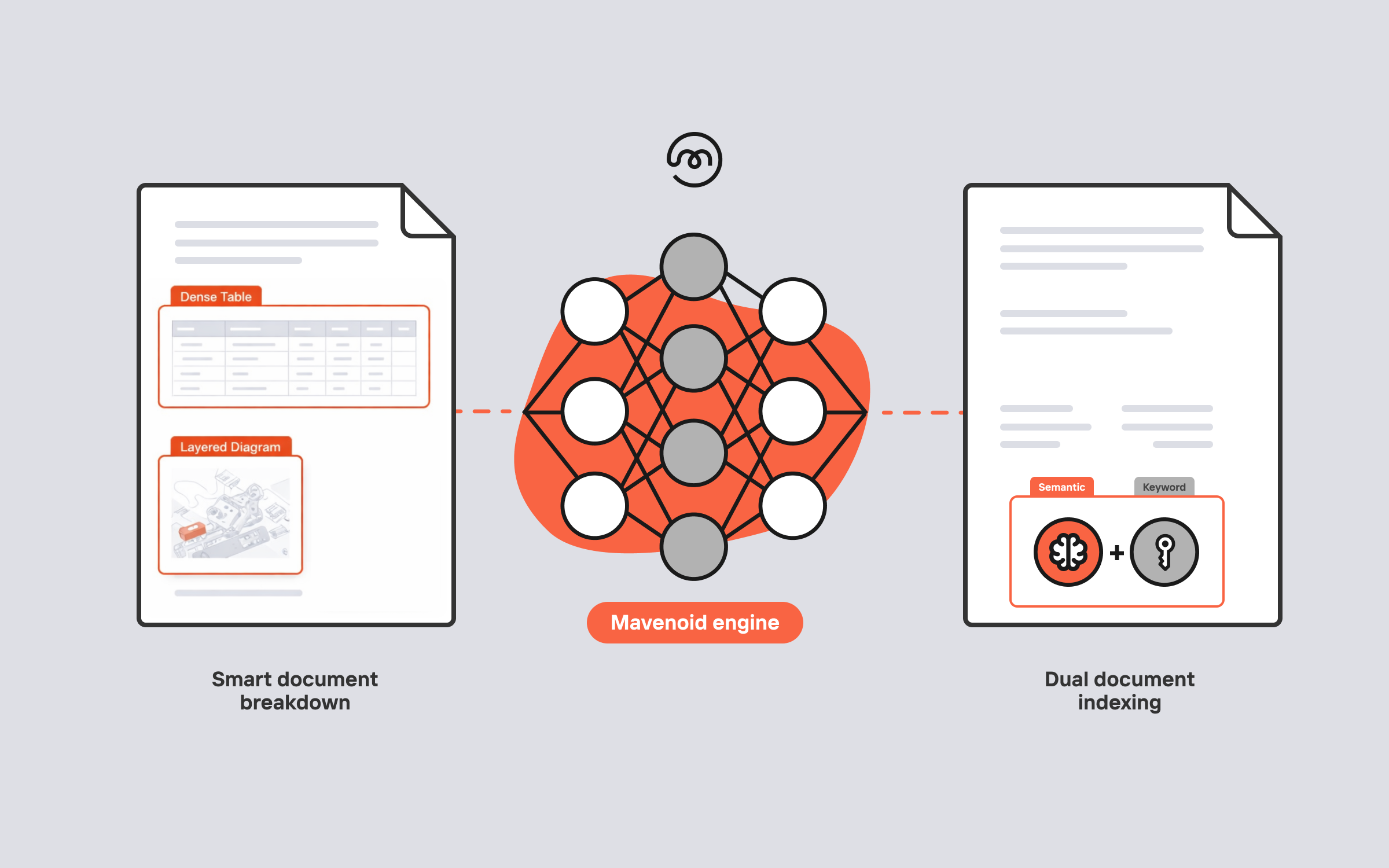Product support can be time-consuming and frustrating for customers and product companies alike. It’s a delicate balancing act to meet customers’ expectations with limited resources. Adding AI to your workflow can minimize or eliminate your biggest product support challenges.
Common Support Challenges for Products & Devices
Product support challenges can influence what support options companies choose to implement for their products. The two main roadblocks to successful product support are the associated complexity and costs.
Product Complexity: Extensive product lines requiring unique troubleshooting expertise are generally a non-starter for support automation and also hinder remote problem solving and consistent support across platforms and scenarios.
Support Costs: While live agents might be the best option for troubleshooting complex product issues, they come at a premium. Live phone conversations cost over $8.00 per conversation on average. For field service with an expert technician, the cost is significantly higher.
Six Ways to Implement AI for Improved Product Support
Product support presents challenges that are uniquely difficult and time-consuming to address. Below is an overview of six ways that implementing AI will help you overcome your product support challenges.
1. Smarter Self-Service
AI-powered product assistants offer nuanced interactions by understanding context, remembering past interactions, and utilizing learnings from vast amounts of customer support data. Unlike simple chatbots, smarter self-service allows for:
- Tailored Content: Virtual assistants can understand a user’s specific needs and provide step-by-step, visual guidance across various channels and surface targeted self-service content for specific SKUs and scenarios.
- Product Recommendations: AI can understand the context of customers’ self-service sessions and recommend products to fix the problem directly, add functionality, or prevent future issues.
2. Faster Support Content Creation
Using Large Language Models (LLMs) alongside generative AI, support teams can identify the most common product issues, surface the most relevant solutions, and create brand new guides, FAQs, or other documentation. Generative AI is able to generate new support flows and conversation from existing documentation, streamlining internal processes. Over time this significantly improves the efficiency and relevance of support content and saves support teams thousands of hours.
For more on how AI can automate support content management, check out this article by Mavenoid’s VP of Product, Galina Ryzhenko.
3. Prevent Support Issues Before They Happen
As the Internet of Things (IoT) technology becomes more integrated into products and devices, there is a growing opportunity for brands to harness data for proactive support. These “smart” devices transmit real-time information about their operation status and performance. Using that data, AI algorithms can spot potential failures before they occur and suggest preventive measures to reduce the chances of a problem occurring.
4. Increase Live Support Efficiency
Cost is often the most restrictive product support challenge and why many product and device companies initially turn to automated options. According to Gartner, live support costs upwards of 80x more than self-service options, so every minute saved drastically impacts companies’ bottom line. AI-powered self-service solutions can dramatically reduce the amount of support queries that are escalated to a live agent.
In scenarios where a customer is escalated to a live agent, AI can still help by analyzing symptoms and giving agents step-by-step troubleshooting instructions. By introducing these agent assist features brands can significantly reduce average resolution times and increase product support teams’ overall efficiency. Faster, intelligent troubleshooting leads to quicker resolutions and improved customer satisfaction.
5. Optimize Field Service Visits
Site visits are a resource-intensive product support challenge that can be avoided or improved through AI.
- More than 30% of site visits do not resolve the issue on the first attempt due to factors like incorrect problem diagnosis or a lack of necessary tools or parts.
- Up to 14% of field support issues do not require a technician at all and only need an explanation of how to use the product.
Technicians are often dispatched for an issue that a customer could resolve themselves if they had the correct documentation or instruction. In those instances, a virtual assistant can help provide the correct troubleshooting steps to help customers resolve their own support issues.
When an on-site visit is necessary, technicians can better prepare for service by using AI to analyze problem descriptions, historical data, and real-time data from the product. AI-powered troubleshooting guides can help technicians more quickly understand the problem and the steps needed to solve it and which tools or parts they need to bring with them, reducing their time in the field.
For complex industrial equipment, field service is necessary and requires highly trained technicians. AI-powered assistants are helpful here as well, as they are able to quickly identify the root cause of an issue and deliver step-by-step guidance to the technician to resolve the issue.
6. Build Better Products
Research and development (R&D) is another product support challenge where AI can deliver impact. When AI is deployed in customer support scenarios, it can analyze data from common support issues to identify opportunities for improvement. This analysis can provide recommendations to improve existing products or develop future designs that address support concerns. We're already seeing this in action in the design of new semiconductor chips, where the cost of R&D is high and introducing efficiency through AI can reduce the barrier for innovation.
Better Support and Customer Experience
From virtual remote support, to generating support documentation, to assisting field service technicians, AI can provide practical solutions to some of the biggest product support challenges facing product and device companies. Embracing these AI-powered strategies can transform the way your team approaches support and help you deliver a superior customer experience.










